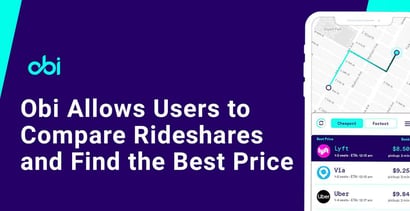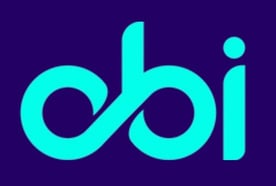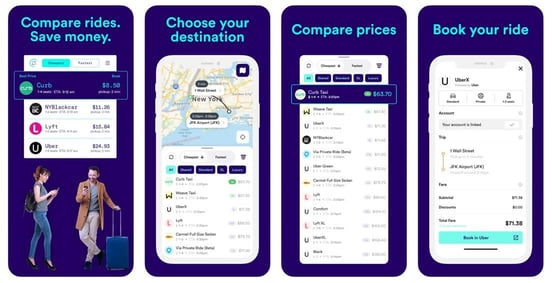

In a Nutshell: Transportation options, including rideshares and taxis, abound in many cities. But when users want an affordable way to get from point A to point B, they don’t have time to search through multiple apps. The Obi app solves that problem with its real-time tools that allow users to compare transportation options in their location. That gives riders more flexibility to choose rides based on the best price or the quickest trip to their destination.
Regular ridesharing app users have likely noticed that popular options, including Lyft and Uber, aren’t as affordable as they once were.
The two ridesharing companies are losing money left and right, forcing them to increase prices just to keep pace.
“That is because Uber has lost an astounding sum since its founding in 2009, including more than $30 billion in the five-odd years since the company’s finances became public. Together with earlier losses and a similar strategy at rival Lyft, this has amounted to an enormous, investor-fueled subsidy of America’s ride-hailing habit,” wrote Henry Grabar for Slate.
Uber prices rose by 92% between 2018 and 2021, and the company’s prices increased by an average of 45% from 2019 and 2022.

Those increases prove that it doesn’t make sense for ridesharing users to simply log onto their favorite app and book a ride. If they do, they could be missing out on cheaper fares offered by other ridesharing companies, or even taxis or black cars.
Payam Safa identified that issue in 2018, before price had become such a significant problem. He launched his rideshare comparison app, Obi, that year.
“Price discrepancies between options can vary 25% at any given moment (and even more with surges and longer rides), meaning that riders are always losing valuable time and money. Quite simply, we all overpay for rides,” according to the company.
Safa understood that many riders didn’t have time to search through multiple apps for the cheapest fare. So he launched Obi as a viable solution for people seeking efficient transportation.
The app provides users with a comprehensive list of ride options in their area, complete with real-time pricing, so they can use their time — and money — more wisely.
With thousands of ridesharing apps around the world, Obi also offers travelers the same benefit, as they can easily compare options in other cities.
Experiencing Steady Growth Since 2017
Obi began in 2017 as a concierge service that recommended food delivery, restaurant reservations, show tickets, and rideshare companies for tourists in unfamiliar cities.
“The platform was aggregating, through API’s of companies, to give the consumer access to those apps without having those other apps on their phone,” Safa told us.
At first, the app — then called Bellhop — only listed Uber as a transportation option, but it soon added Lyft. It became the first app in the world that allowed users to compare Uber and Lyft pricing in a single app.
“It was kind of an organic development. It was a need that I personally faced, and I didn’t know what ride apps were best or even available. It’s something that many consumers do today — comparison shop, or switch from one app to the next to find the best deal,” Safa said.

Eventually, the company pivoted to focus only on transportation providers, launching as Obi in 2018.
Since then, Safa and his team have added partner transportation companies around the world. By 2021, Obi had secured more than 300 integrations with ridesharing companies, taxis, and black cars around the world.
The app’s comparison-shopping tools have also struck a chord. Obi has more than 230,000 downloads and has been used to make 450,000-plus bookings. What’s more, the app’s booking volume has increased to $3.8 million.
Obi’s proprietary technology proved so popular that a funding round on Republic in October 2021 earned the company more than its goal. And the company has raised nearly $900,000 in capital across three successful campaigns.
Helping Users Save Both Time and Money
When users download Obi, they can see all of the ridesharing options available from their location. They can also customize the type of ride they want. For example, users can search just for certain ride types and categories, including luxury or wheelchair accessible vehicles.
The app returns a list of options available for that trip. Obi users can decide whether they want the most affordable ride or the quickest one. Then, they can book the trip either directly through Obi or on the transportation provider’s app.
Whether users book on Obi or directly on the transportation provider’s app depends on the provider. For example, users can book the taxi provider Curb directly on Obi without creating a profile or adding a different credit card on Curb’s platform.
With a provider like Uber, on the other hand, users link their accounts to Obi and complete the booking on the Uber app.
“We pre-populate the pickup address, destination address, and ride type. So, it’s all done and makes it very seamless and easy for you. And you just have to click the ‘Book’ button to complete the transaction,” said Safa.
Users can also link their other ridesharing, taxi, and even credit card accounts to Obi. That is helpful if users have earned transportation rewards.
“If you link your account, we can access your personalized discounts. Let’s say for example, you have a Chase Sapphire Reserve, and you get an additional 5% off for a particular month. When you link your account, you’re going to see that particular promotion or discount in Obi. If you don’t link, then it might not be as accurate because there might be that promotion that wouldn’t be visible,” Safa told us.
Users around the world can download Obi in more than 50 app stores, and Obi is planning more partnerships with transportation companies around the world.
“We’re always listening to our users and incorporating feedback. So if there’s a user in Zimbabwe, Africa, and we don’t have a provider yet, we’ll go ahead and look at that and add it to our road map. We listen to that feedback regularly and incorporate it,” said Safa.
Obi: Focused on Adding Useful Features
Safa asks potential users and investors to compare Obi to similar price-comparison apps and websites in other industries. When they do, they will see that the app is a trailblazer.
“In the hotel industry, you have Trivago. Skyscanner and Kayak also do it for flights, as do many platforms that provide aggregation of marketplaces. But before us, nothing existed for the ground transportation industry,” he said.
Safa and his team have certainly found their niche. On average, Obi saves users around 20% on ridesharing costs. About 10% of Obi users seek transportation through the app daily, meaning that they’re likely saving thousands of dollars a year.
Obi is a useful app to navigate ridesharing and transportation options. But Safa and his team aren’t finished innovating. Today, the team is running machine learning algorithms to help users see how transportation prices could fluctuate over short periods of time.
“For example, the app will be able to say, ‘Hey, did you know if you waited an extra five minutes, you could save an extra $5 on this ride versus doing it now?’ We know how the prices are fluctuating in the coming minutes, and can give that information to users so they can make a better decision,” said Safa.
That could be a particularly helpful tool for Obi users who want to avoid surge pricing. And users can also search in advance to get an idea of prices in a certain area.
“Let’s say you’re going to Paris on a vacation for a week, and you want to make sure that there are rideshares available in Paris, as opposed to renting a car. You can do that type of homework using Obi to make sure that rideshares are a viable solution when you’re in a city you’re not familiar with,” Safa told us.
Advertiser Disclosure
BadCredit.org is a free online resource that offers valuable content and comparison services to users. To keep this resource 100% free for users, we receive advertising compensation from the financial products listed on this page. Along with key review factors, this compensation may impact how and where products appear on the page (including, for example, the order in which they appear). BadCredit.org does not include listings for all financial products.
Our Editorial Review Policy
Our site is committed to publishing independent, accurate content guided by strict editorial guidelines. Before articles and reviews are published on our site, they undergo a thorough review process performed by a team of independent editors and subject-matter experts to ensure the content’s accuracy, timeliness, and impartiality. Our editorial team is separate and independent of our site’s advertisers, and the opinions they express on our site are their own. To read more about our team members and their editorial backgrounds, please visit our site’s About page.




